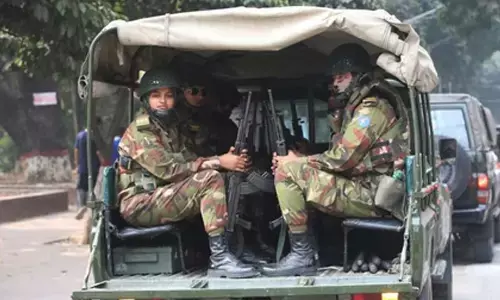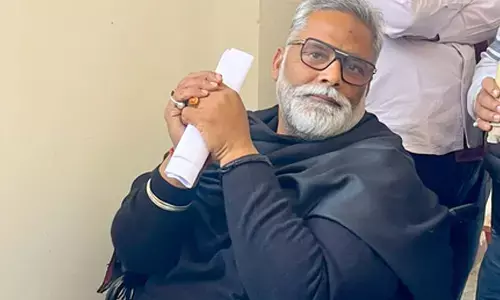Blood tests can help detect heart attack risk: KGMU
Share :

A timely blood test can help doctors check the risk of heart attack, or detect how serious a head injury might be, thereby reducing time spent in the emergency room and no exposure to radiation from CT scans.
Lucknow: A timely blood test can help doctors check the risk of heart attack, or detect how serious a head injury might be, thereby reducing time spent in the emergency room and no exposure to radiation from CT scans.
This new approach was discussed at continuing medical programme Pathology Update, at King George’s Medical University on Sunday.
Experts said for heart attacks, doctors already have a simple blood test called troponin I (Trop I).
Studies in Russia and the US have found this test not only helps diagnose heart attack but can also indicate the risk of having one in the future.
A level of troponin I above 34 usually means a heart attack. However, a level above 12 might suggest an increased risk.
Ideally, the level should be below 6 for a healthy heart, with 6-11 indicating a slight risk. The test values for females for a healthy heart are 4, 5-9 for mild risk, and over 10 for high risk.
Dr Neeraj Bhalla, a cardiologist, said: “People with diabetes, high blood pressure, those who are overweight, or with a history of a heart attack should go in for a check of these levels every six months.”
Brain injury specialist, Dr Ketan Patel, explained that head injuries could vary a lot-- from life-threatening to mild bumps with no lasting damage. This new blood test is a more objective way to assess the severity of head injury.
Instead of relying on CT scans, which aren’t suitable for everyone and involve radiation, doctors can use specific markers in the blood.
UCHL1 and CFAP blood can help them make better decisions about patients’ care.
“A positive blood test might indicate the need for further care in the hospital. Negative results mean allowing patients to go home sooner,” he said.
Prof Somil Jaiswal of neurosurgery and Prof Wahid Ali of pathology departments from KGMU suggested that blood markers offer faster diagnoses, avoid radiation exposure from CT scans and can ultimately lead to better patient care.
“In the future, these tests might even contribute to personalised medicine for head injuries,” said Jaiswal.









